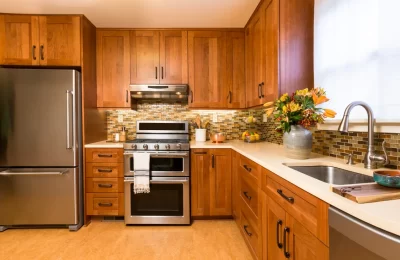
When you want to increase the level of security around your home, you should consider a variety of options for installing a Home Security system. You may want to invest in a control panel that will send a signal to a central monitoring center if there is a break-in. If you are on a budget, you may want to consider a DIY solution. There are a variety of devices available for this purpose, but a professionally installed system may offer more features for less money.
Before purchasing a home security system, you should consider the size of your home. The larger your home, the larger your motion detectors will need to be. Also, consider the number of points of entry into your home. Approximately three-quarters of burglars use the front door to get into a home, while 23% choose first-floor windows to gain entry. Therefore, it’s important to protect all entry points with a home security system.
While professional home security systems can protect you and your family from danger, some unmonitored devices are more affordable, and less effective. Unmonitored systems have similar equipment as monitored ones, but without a monitoring company. Because unmonitored systems are not monitored, they aren’t as effective when you’re away. Plus, if something happens to you, it can be difficult to contact emergency services if you are not home.
Another benefit of home security systems is that you can control them from a cell phone. Many advanced systems can be controlled remotely, so you can stay in touch with your loved ones from anywhere in the world. Plus, they can also be a great selling point for your home – prospective buyers will be more likely to offer you top dollar for it if they see the security features of your home. Furthermore, you will save money on insurance premiums if you choose a monitored system.
There are two main types of home security systems. There are wireless and wired home security systems. Wireless security systems are popular but may not be suitable for every home. Wired systems typically contain high definition cameras and multiple control panels. Wired home security systems are not as flexible, and may require expensive installation and ongoing monthly subscription charges. They are also difficult to move or uninstall. While wireless options are convenient, wired systems may require a lot of batteries.
Non-traditional security companies are another option. These security providers are typically more expensive than traditional security companies, but they may be worth the money if you trust them to monitor your home. In addition, non-traditional security companies may not offer the same level of support, which makes them a great choice if you trust them. If you’re comfortable with DIY security devices, you should consider the non-traditional option. Although you might be able to install and monitor your own home security devices, you’ll have to pay for additional services and equipment, and may need professional installation and monitoring.










